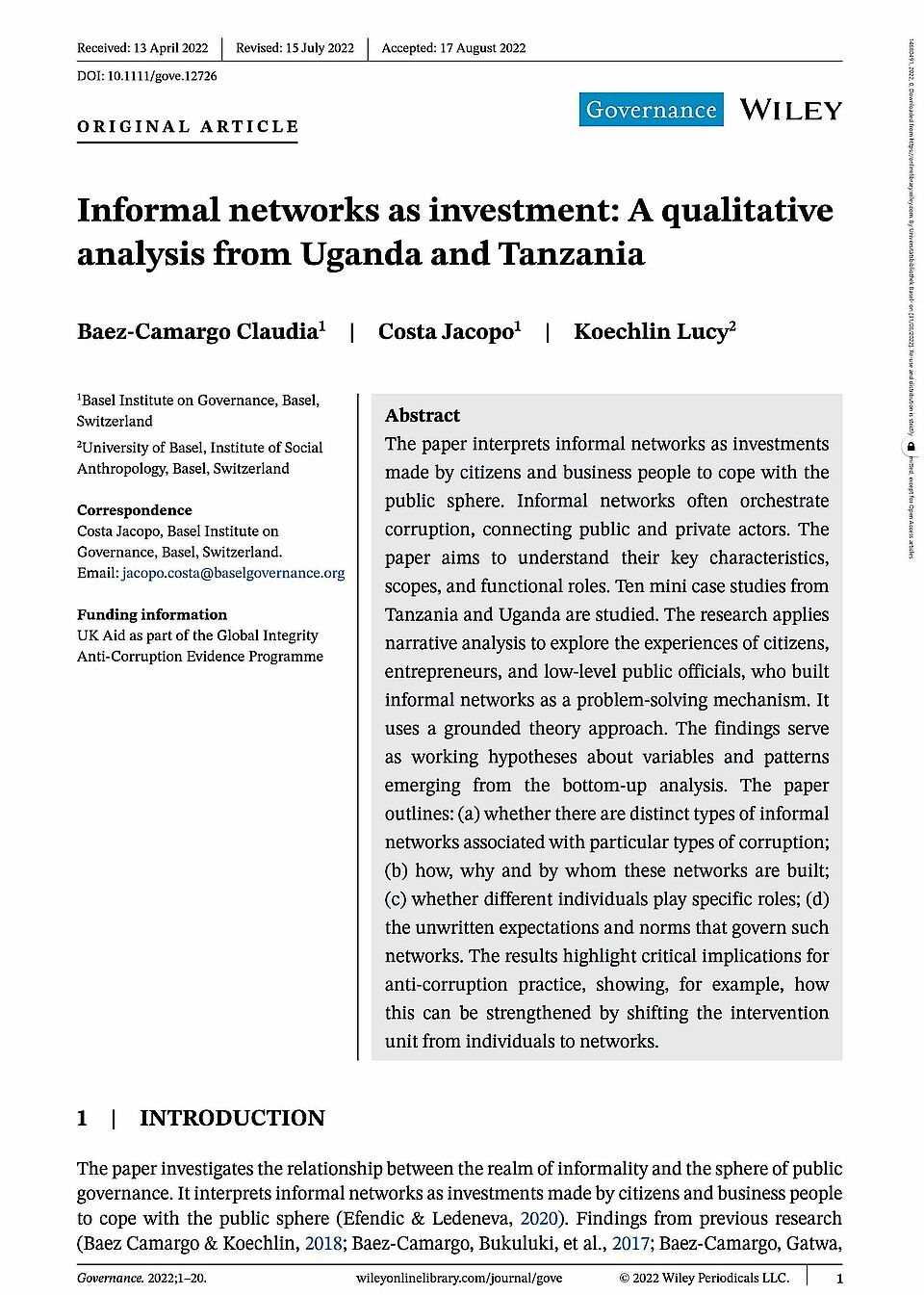News
/ Forschung
Publication: "Informal networks as investment: A qualitative analysis from Uganda and Tanzania"

In their paper, Claudia Baez-Camargo, Jacopo Costa and Lucy Koechlin examine the relations between informal networks and public governance in Tanzania and Uganda. They apply narrative analysis to explore the experiences of citizens, entrepreneurs, and low-level public officials, who built informal networks as a problem-solving mechanism. The results highlight critical implications for anti-corruption practice.
Abstract
The paper interprets informal networks as investments made by citizens and business people to cope with the public sphere. Informal networks often orchestrate corruption, connecting public and private actors. The paper aims to understand their key characteristics, scopes, and functional roles. Ten mini case studies from Tanzania and Uganda are studied. The research applies narrative analysis to explore the experiences of citizens, entrepreneurs, and low-level public officials, who built informal networks as a problem-solving mechanism. It uses a grounded theory approach. The findings serve as working hypotheses about variables and patterns emerging from the bottom-up analysis. The paper outlines: (a) whether there are distinct types of informal networks associated with particular types of corruption; (b) how, why and by whom these networks are built; (c) whether different individuals play specific roles; (d) the unwritten expectations and norms that govern such networks. The results highlight critical implications for anti-corruption practice, showing, for example, how this can be strengthened by shifting the intervention unit from individuals to networks.

